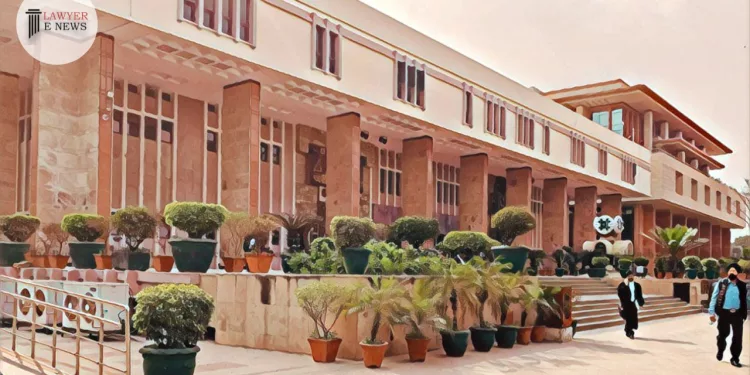Delhi High Court Sets Aside Administrative Tribunal’s Orders, Emphasizes the Need for Reasoned Decisions in Case Transfers

In a recent judgment, the Delhi High Court has overturned two orders issued by the Chairman of the Central Administrative Tribunal, highlighting the importance of providing well-reasoned decisions when transferring cases between benches. The decision, delivered by Justice V. Kameswar Rao and Justice Anoop Kumar Mendiratta, brings attention to the principles of natural justice in administrative actions.
The judgment, which pertained to W.P.(C) 6326/2023 and W.P.(C) 7341/2023, revolved around the transfer of cases initiated by the State of Bihar against Indian Police Service (IPS) Officer Amit Lodha. The State had challenged orders issued by the Chairman of the Central Administrative Tribunal, Principal Bench, New Delhi, which had transferred and retained the cases.
Justice Rao and Justice Mendiratta emphasized that administrative authorities, even when exercising powers to transfer cases, must adhere to principles of natural justice, including the necessity for well-reasoned decisions. The court observed that the Chairman’s orders lacked the required reasoning, violating these principles.
“The law with regard to the nature of power exercised by the Chairman of the Tribunal has been settled by the Supreme Court in the case of All India Institute of Medical Sciences v. Sanjiv Chaturvedi, (2020) 17 SCC 602, wherein the Apex Court has clearly held that the power to transfer cases from one Bench to another under Section 25 is an administrative power of the Chairman,” the court stated.
The court further added, “One of the submissions of Mr. Amanullah was that the impugned orders render Sections 18 and 19 of the Act of 1985 otiose. Suffice it to state, we are not impressed by the said plea, as under Section 25 of the Act, the Chairman is expressly vested with the power to transfer cases from one Bench of the Tribunal to another.”
The Delhi High Court set aside the orders issued on March 2, 2023, and March 27, 2023, by the Chairman of the Central Administrative Tribunal. It directed the Chairman to reconsider the Transfer Petitions with a focus on providing well-reasoned and speaking orders. Until new decisions are reached, no proceedings will take place in the affected cases.
This judgment serves as a reminder of the importance of transparency and fairness in administrative actions, even when involving transfers of cases, and underlines the necessity for reasoned decisions to maintain the integrity of the process.
Date of Decision: 09.10.2023
State of Bihar and Ors. vs Amit Lodha and Ors.






